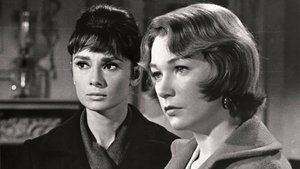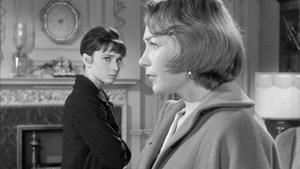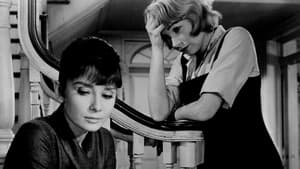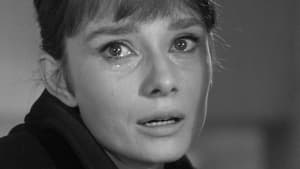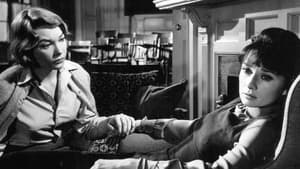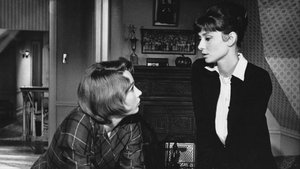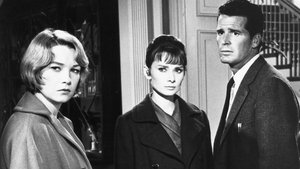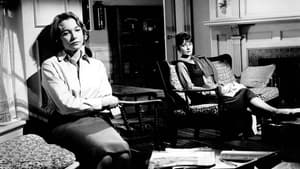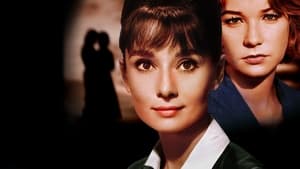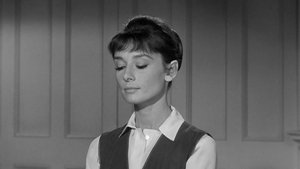Contact: [email protected]
Video Sources 0 Views
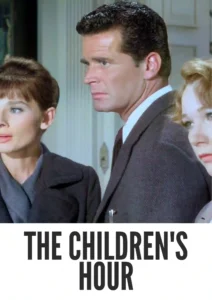
The Children’s Hour 1961 First Early Colored Films Version
Synopsis
“The Children’s Hour” (1961): A Poignant Tale of Prejudice and Betrayal

Introduction
“The Children’s Hour” (1961) is a powerful drama directed by William Wyler, based on the play of the same name by Lillian Hellman. Set in a girls’ boarding school, the film explores themes of prejudice, betrayal, and the destructive power of rumors. With its stellar cast and emotionally charged storyline, “The Children’s Hour” remains a compelling and thought-provoking exploration of the consequences of intolerance and societal pressure.
Check The Full Colorized Movies List
Check Our Colorized Movies Trailer Channel
The Artistry of “The Children’s Hour”
Wyler’s Directorial Skill
At the helm of “The Children’s Hour” is William Wyler, a masterful director known for his ability to craft emotionally resonant dramas with depth and nuance. With this film, Wyler brings Hellman’s acclaimed play to life on the screen, capturing the tension and emotional turmoil of the characters with sensitivity and precision. Through his expert direction, Wyler creates a compelling narrative that unfolds with gripping intensity, drawing viewers into the complex world of the boarding school and its inhabitants.
Stellar Performances
Central to the film’s impact are the stellar performances of its cast, led by Audrey Hepburn, Shirley MacLaine, and James Garner. Hepburn and MacLaine deliver nuanced and emotionally charged performances as the schoolteachers whose lives are irrevocably changed by a devastating lie, while Garner shines in his role as a conflicted doctor caught in the middle of the ensuing scandal. Through their powerful portrayals, the cast brings depth and authenticity to the characters, eliciting empathy and understanding from the audience.
Revisiting the Storytelling Mastery: Plot and Themes
Confronting Prejudice and Intolerance
“The Children’s Hour” confronts the destructive effects of prejudice and intolerance, as the lives of the characters are torn apart by false accusations and societal pressure. Through its exploration of themes such as homophobia and the consequences of blind belief, the film shines a light on the dangers of ignorance and the need for empathy and understanding in the face of injustice. As the characters grapple with the fallout of the rumors surrounding their relationship, they are forced to confront their own prejudices and the harsh realities of the world around them.
Betrayal and Redemption
At its core, “The Children’s Hour” is a story of betrayal and redemption, as the characters navigate the fallout of a devastating lie and strive to reclaim their sense of dignity and self-worth. As the truth slowly emerges, friendships are tested, alliances are shattered, and the characters are forced to confront the consequences of their actions. Through its exploration of themes such as forgiveness and redemption, the film offers a powerful message of hope and resilience in the face of adversity.
Behind the Scenes of “The Children’s Hour”
Capturing Emotional Depth
Behind the camera, William Wyler employs his trademark visual style and storytelling techniques to bring “The Children’s Hour” to life on screen. From the film’s evocative cinematography to its haunting score, every aspect of the production is carefully crafted to enhance the emotional depth and resonance of the story. Through his expert use of light, shadow, and composition, Wyler creates a visually stunning and thematically rich cinematic experience that lingers in the mind long after the credits roll.
Collaboration and Creativity
“The Children’s Hour” is a testament to the collaborative efforts of its cast and crew, who work together to bring Hellman’s powerful play to life on screen. From the meticulous set design to the authentic costumes and props, every detail of the production reflects the dedication and creativity of those involved. Through their collective efforts, the cast and crew of “The Children’s Hour” create a cinematic experience that is both visually stunning and emotionally resonant, inviting viewers to immerse themselves in the world of the film and its compelling characters.
Legacy and Influence on Cinema
Cultural Impact
Upon its release, “The Children’s Hour” was met with critical acclaim, earning praise for its powerful performances, thought-provoking themes, and expert direction. The film went on to become a classic of the drama genre, inspiring audiences and filmmakers alike with its timeless message of tolerance, compassion, and the importance of speaking out against injustice. Over the years, “The Children’s Hour” has continued to be celebrated as a landmark achievement in cinema, with its themes and characters remaining as relevant and resonant today as they were upon its initial release.
Influence on Social Consciousness
“The Children’s Hour” has had a profound impact on social consciousness, sparking important conversations about prejudice, discrimination, and the power of empathy and understanding. Through its unflinching portrayal of the consequences of intolerance and the courage required to stand up against injustice, the film serves as a powerful reminder of the importance of compassion and solidarity in the fight for equality and human rights. As viewers revisit “The Children’s Hour” in the present day, they are reminded of the film’s enduring relevance and its ability to inspire empathy and action in the face of adversity.
Where to Watch “The Children’s Hour (1961) Full Movie”?
For those eager to experience the powerful drama and thought-provoking themes of “The Children’s Hour” in its entirety, the film is readily available on various streaming platforms and home video releases. Whether you’re a fan of emotionally resonant dramas, thought-provoking social commentary, or compelling character-driven narratives, “The Children’s Hour” promises to captivate and inspire audiences with its timeless appeal and universal message of compassion and understanding.
In Conclusion
“The Children’s Hour” (1961) stands as a timeless masterpiece of drama, offering a poignant and thought-provoking exploration of prejudice, betrayal, and the power of redemption. Through its powerful performances, expert direction, and thought-provoking themes, the film invites viewers on a journey of self-discovery and moral introspection, challenging them to confront their own prejudices and the harsh realities of the world around them. As we revisit the world of “The Children’s Hour” and its unforgettable characters, let us be reminded of the importance of empathy, compassion, and the courage to speak out against injustice in all its forms.
